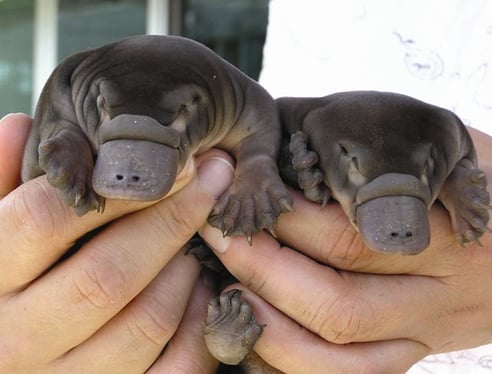Platypus - Unique Mammal Lost Its Stomach
Meet the platypus, a mammal like no other! Discover how this extraordinary creature evolved to lose its stomach, yet still manages to digest its food. Uncover the fascinating adaptations that make the platypus a true marvel of nature. Read on to learn more about this remarkable animal's unique biology-Platypus - Unique Mammal Lost Its Stomach
BLOGS-RATHBIOTACLAN


Welcome to RathBiotaClan, where we explore the incredible and often perplexing adaptations of the natural world. Today, we delve into the fascinating story of the platypus and the mystery of how it lost its stomach—a unique evolutionary journey that sets this extraordinary mammal apart from its peers.
-----------
The Platypus: Nature's Enigma
The platypus (Ornithorhynchus anatinus) is one of the most unusual creatures on the planet. With its duck-bill, beaver-like tail, and webbed feet, it has puzzled scientists since its discovery. Adding to its list of oddities, the platypus lacks a true stomach—a trait that is incredibly rare among vertebrates.
Understanding the Stomach's Role:
In most vertebrates, the stomach serves as a crucial organ for digestion. It secretes acids and enzymes that break down food, preparing it for further digestion and nutrient absorption in the intestines. So, how does the platypus manage without this essential organ?
The Evolutionary Journey :
1. Genetic Insights:
Recent genomic studies have provided insights into the platypus's unique digestive system. Researchers discovered that the platypus genome lacks several key genes responsible for producing stomach acids and digestive enzymes. This genetic absence indicates a gradual evolutionary process where these genes were lost or became non-functional over time.
2. Ancestral Adaptations:
The ancestors of the platypus likely began to adapt to a diet that didn't require the conventional digestive processes seen in other mammals. Over millions of years, as these early monotremes evolved, their reliance on a stomach for digestion diminished, leading to its eventual loss.
3. Current Digestive System:
Today, the platypus compensates for the absence of a stomach with an elongated esophagus that directly connects to its intestines. This system allows for the direct passage of food, which is then broken down and absorbed in the intestines. The platypus primarily feeds on small aquatic invertebrates, which are easier to digest without the need for stomach acids.
The Platypus Diet:
The diet of the platypus plays a crucial role in its unique digestive adaptation. Feeding on soft-bodied prey such as worms, insect larvae, and crustaceans, the platypus doesn't require the robust digestive processes needed to break down tougher food items. This dietary specialization has facilitated the evolution of its simplified digestive tract.
Why This Matters:
Understanding the platypus's unique digestive system provides valuable insights into evolutionary biology. It highlights how species can undergo significant anatomical and physiological changes in response to their environment and dietary needs. This knowledge not only enriches our understanding of the platypus but also offers broader implications for the study of evolution and adaptation.
The story of how the platypus lost its stomach is a testament to the incredible adaptability of life on Earth. As we continue to uncover the mysteries of this remarkable creature, we gain deeper insights into the complexity and diversity of evolutionary processes.
At RathBiotaClan, we are dedicated to bringing you the most fascinating stories from the natural world. Stay tuned for more intriguing explorations, and join the conversation by sharing your thoughts and questions. Subscribe to our newsletter and follow us on social media to never miss an update.
